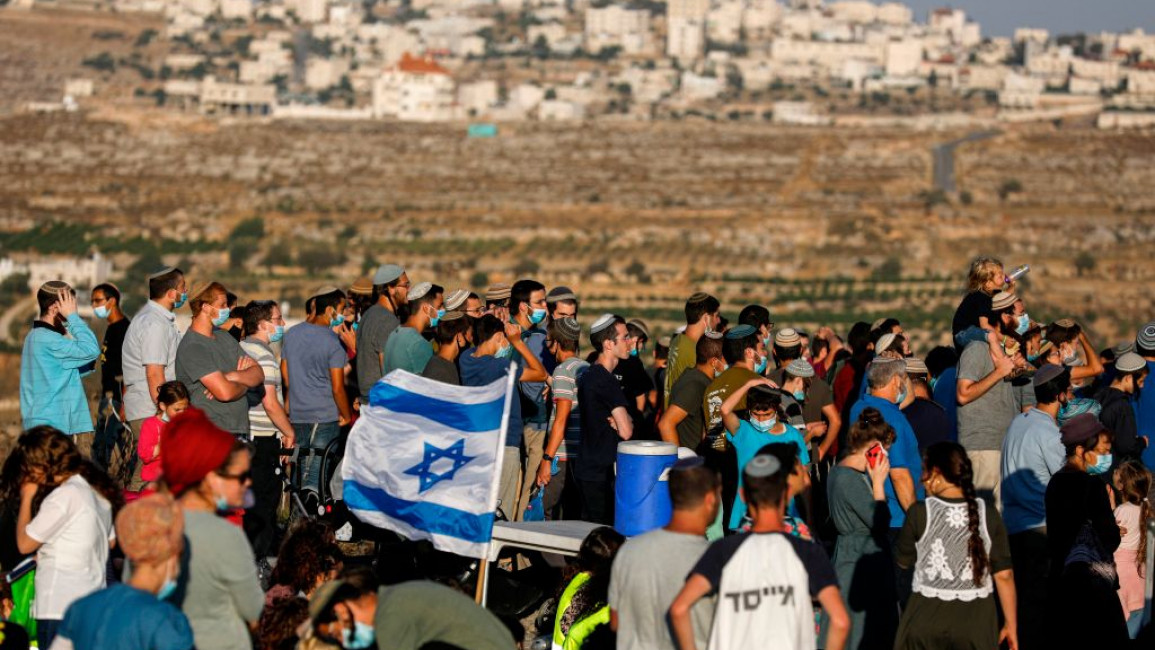Rights group: Settlers attack Palestinian farmers, 3 injured
Jewish settlers attacked Palestinian farmers in the occupied West Bank on Monday and injured three people, according to an Israeli human rights group, in what has become a near-daily occurrence in recent weeks.
Yesh Din, an Israeli rights group, said one of its researchers went along with more than a dozen Palestinian farmers to tend their land in the northern West Bank area of Burqa, where the Israeli settlement outpost of Homesh was evacuated in 2005.
Lior Amihai, the director of the group, tweeted that settlers attacked the Palestinians with stones, clubs and pepper spray. He posted videos showing the confrontation from a distance and pictures of those who were hurt, one of whom had a bloody gash on his head.
Israeli and Palestinian rights groups say settlers attack Palestinian farmers on a near-daily basis, often as Israeli soldiers look on.
The Israeli military said its soldiers were called to the scene of a "violent confrontation" in which both sides threw rocks and the Israelis fired shots in the air. It said soldiers dispersed the crowds.
In a report issued Sunday, the Israeli rights group B'Tselem said Israel uses settler violence to drive Palestinians off of farm and pasture land in the occupied West Bank as part of its continual expansion of Jewish settlements there. Israel captured the West Bank in the 1967 war, and the Palestinians want it to form the main part of their future state.
Israeli leaders spoke out against settler violence after dozens of settlers attacked a Palestinian village in late September, wounding a toddler, but there have been several attacks since then.
Nearly 500,000 Jewish settlers live in more than 130 settlements scattered across the West Bank, many of which resemble towns and suburbs, with built-up neighborhoods and shopping malls. More radical settlers have established dozens of additional outposts without Israeli authorisation.
The Palestinians view all the settlements as the main obstacle to the creation of a viable Palestinian state alongside Israel, which is still seen internationally as the only way to resolve the conflict. Most of the international community views the settlements as illegal.
Israel's current prime minister, Naftali Bennett, is a strong supporter of settlements who is opposed to a Palestinian state and has shown no interest in reviving the long-dormant peace process. But he has called for steps to reduce friction and improve economic conditions for Palestinians.


![President Pezeshkian has denounced Israel's attacks on Lebanon [Getty]](/sites/default/files/styles/image_684x385/public/2173482924.jpeg?h=a5f2f23a&itok=q3evVtko)



 Follow the Middle East's top stories in English at The New Arab on Google News
Follow the Middle East's top stories in English at The New Arab on Google News


